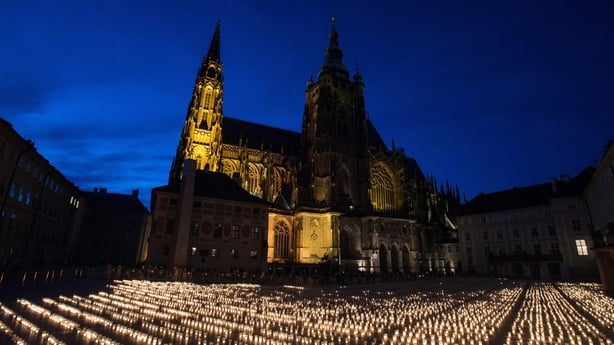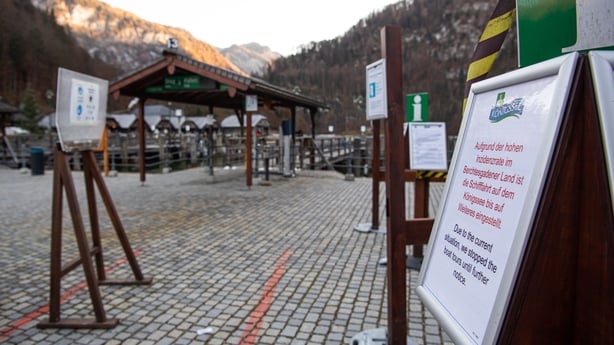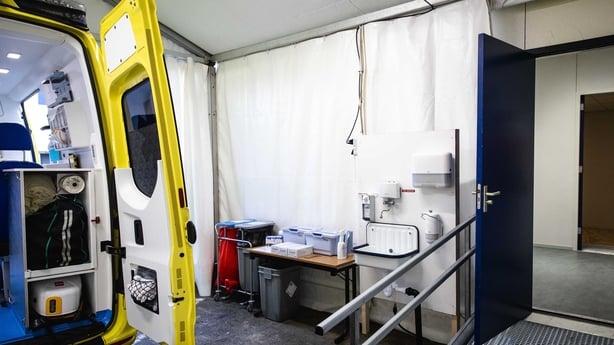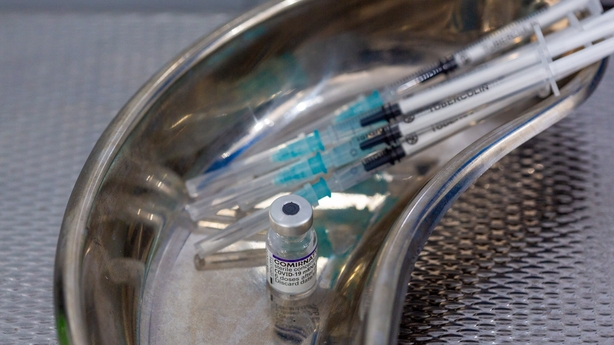Portugal, one of the world's most vaccinated nations, has reimposed some restrictions to stop a surge in Covid-19 cases, ordering all passengers flying into the country, even those fully inoculated, to show a negative test on arrival.
"It doesn't matter how successful the vaccination was, we must be aware we are entering a phase of greater risk," Prime Minister Antonio Costa told a news conference today.
"We have seen significant growth (in cases) in the EU and Portugal is not an island."
Mr Costa has also announced those fully vaccinated must also present a negative coronavirus test to enter nightclubs, bars, large events and care homes, and reimposed mandatory mask-wearing in indoor spaces
Czech government bans Christmas markets

The Czech government has ordered bars and clubs to close at 10pm and has banned Christmas markets in an attempt to stem one of the world's highest coronavirus infection rates.
The new restrictions also include a maximum attendance of 1,000 people at culture and sports events, stopping short of the sweeping lockdowns in neighbouring Austria and Slovakia, where infection rates are even higher.
The Czechs registered more than 25,000 new cases, a record, on Tuesday, and an average of 1,516 daily Covid-19 cases per million population over the past week, the third highest in the world behind Slovakia and Austria, according to Our World in Data.
The limits on pubs and events come on top of earlier restrictions that already bar people who have not been vaccinated or recovered from Covis-19 from places including pubs, restaurants, cinemas, hairdressers and gyms.
German death toll passes 100,000
Germany announced record coronavirus fatalities and infections today as its total death toll passed 100,000, with its most severe virus wave yet swelling just as a new government prepares to replace Angela Merkel's coalition.
Europe's largest economy recorded 351 Covid fatalities in the past 24 hours, bringing the official death toll since the start of the pandemic to 100,119, in what Bild daily called a "grim milestone".
Germany is in a phase of exponential growth in numbers of coronavirus cases, Chancellor Angela Merkel said, adding that every day counted when it came to enacting social distancing measures designed to slow its spread.
Some of outgoing conservative chancellor's allies have criticised Social Democrat Olaf Scholz's government-in-waiting for declining to extend some lockdown measures that were put in place by Ms Merkel's government.
Ms Merkel said more social distancing measures were needed.
Germany last week began requiring people to prove they are vaccinated, have recovered from Covid-19 or have recently tested negative for the virus before they can travel on public transport or enter workplaces.

Several of the worst-hit areas have gone further, cancelling large events like Christmas markets and barring the unvaccinated from bars, gyms and leisure facilities.
Germany's Covid-19 crisis has in part been blamed on its relatively low vaccination rate of about 69%, compared to other Western European countries such as France, where it is 75%.
Dutch health experts advise tighter lockdown against Covid-19 surge
Dutch health experts have advised the government to close restaurants and non-essential stores by 5pm as part of tighter lockdown measures to slow the spread of Covid-19, national broadcaster NOS has reported.
Prime Minister Mark Rutte is expected to announce new measures to slow new infections, which are currently at record highs, tomorrow.
Some hospitals have halted chemotherapy treatments and organ transplants to free up intensive care beds for a surging number of Covid-19 patients, an official said.
The Dutch Hospital Association for Critical Care said it had asked Health Minister Hugo de Jonge to escalate the national Covid-19 plan to a stage under which regular care requiring an overnight stay would be cancelled.
The number of coronavirus patients in hospital has hit levels not seen since early May, and experts have warned that hospitals will reach full capacity in little more than a week if the virus is not contained.

Several Covid-19 patients were transferred to German hospitals this week.
Although some 85% of the adult Dutch population has been fully vaccinated against Covid-19, new cases hit a record high of 23,709 in 24 hours yesterday and are up almost 40% on a weekly basis.
After ending most social distancing measures in late September, the Dutch government this month reintroduced mask-wearing and reimposed a partial lockdown.
Plans to restrict access to many public places to people who have been vaccinated or have recently recovered from Covid-19 prompted three nights of rioting from last Friday and more than 170 people were arrested across the country.

France makes Covid-19 booster shots available to all adults
French Health Minister Olivier Veran has confirmed that Covid-19 booster shots will be made available to all adults starting this weekend, with the government hoping that the move will help contain a new wave of the disease.
Mr Veran also said during a news conference that the delay between a full vaccination programme and a booster shot will be shortened to five months instead of six.
France's Haute Autorite de Sante (HAS) health regulator said it was backing booster Covid vaccination shots for those aged 18 and over, and that the interim period between full vaccination and the booster shots should be shortened to five months instead of six.
HAS mentioned a renewed spread of the coronavirus that was "stronger than anticipated", and that the 'R' reproduction rate of 1.35 indicated "exponential growth" of infections.

Yesterday, health authorities reported over 30,000 new infections for a second day in a row, a sequence unseen since the end of April.
The seven-day moving average of daily new cases - which evens out reporting irregularities - stands at a three-month high of 21,761 and has almost quadrupled in a month.
The number of people treated in intensive care for Covid-19 is nearly 1,500, a figure last seen at the end of September.
President Emmanuel Macron's government has said it would focus on tougher social distancing rules and a faster booster shot programme and that it wanted to avoid imposing lockdowns again.
The PCR tests for the non-vaccinated will only be valid for one day - instead of 72 hours currently - and working from home is likely to be recommended when possible.
Booster shots will become a requirement for a valid health pass, which is required in France to enter restaurants, cafes, cinemas and museums, among other public venues.
According to data available on the health ministry's website, France has more than 30 millions vaccines in stock.
Meanwhile, European Union residents will need to have Covid-19 vaccine booster jabs if they want to travel to another country in the bloc next summer free of tests or quarantines, the European Commission has proposed.
The commission wants to harmonise rules across the 27 EU nations to allow free movement, a cornerstone of the European Union, but is facing new restrictions as cases break records in Europe and many EU countries roll out booster doses.
It made its proposal as Europe again became the centre of the Covid-19 pandemic even after successful vaccination campaigns, prompting some countries to consider new curbs on movement as the continent heads into winter.
EU governments, which will need to approve the commission recommendation, kicked off debate on the topic on Tuesday.
EU coordination on Covid passes, which show if a holder is fully vaccinated or has had a recent negative test or recovery from infection, has allowed an easing of curbs on cross-border travel.
Minister for European Affairs Thomas Byrne said the EU wants to see medical evidence to back up any validity limits, but regardless of what happens people can continue to travel but must be aware of different and changing rules.
Speaking on RTÉ's Today with Claire Byrne, he said the Government is not currently looking at imposing a time limit on the Covid pass for travel.
"It's a messy situation... we don't want to see travel closed down again... there is work happening today, tomorrow and next week to bring co-ordination to this".
